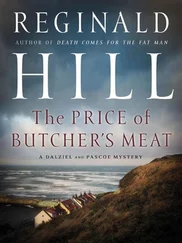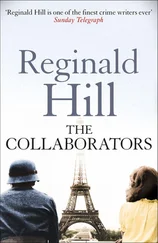He introduced himself as John Childs and when he heard her name, he said, ‘Ah, yes. Curing Souls. A stimulating read.’
Suspecting that, for whatever reason, he might have simply done a little basic pre-prandial homework, she tried him out with a few leading questions and was flattered to discover that not only had he actually read the book but he did indeed seem to have been stimulated by it.
Some explanation of his interest came when he told her that he had a godson, Harry, who was doing A-level psychology and hoping to pursue his studies at university. Childs then set himself to pick Alva’s brain about the best way forward for the boy. It is always flattering to be consulted as an expert and it wasn’t till well through the dinner that she managed to turn the conversation from herself to her interlocutor.
His own job he described as a sort of Home Office advisor, I suppose , a vagueness that from any other nationality Alva would have read as an attempt to conceal unimportance, but which from this kind of Englishman probably meant he was very important indeed.
When they parted he said how much he’d enjoyed her company, and she replied that the feeling was mutual, realizing, slightly to her surprise that this was no more than the truth. He was certainly very good to talk to, meaning, of course, that he was an excellent listener!
Next morning she was surprised but not taken aback when he rang to invite her to take tea with him in Claridge’s. Curious as to his motives, and also (she always tried to confront her own motivations honestly) because she’d never before been invited to take tea at Claridge’s, she accepted. The hotel lived up to her expectations. Childs couldn’t because she had none. They chatted easily, moving from the weather through the ghastliness of politicians to more personal matters. She learned that he came from Norfolk yeoman stock, lived alone in London, and was very fond of his godson, whose parents, alas, had separated. Childs had clearly done all he could to minimize the damage done to the boy. He seemed keen to get her approval for the way he’d responded to the situation, and once again Alva enjoyed the pleasure of being deferred to.
Later she also had a vague feeling with no traceable source that she was being assessed.
But for what? The notion that this might be an early stage of some rather old-fashioned seduction technique occurred and was dismissed.
Then a couple of days later he asked her to lunch at a Soho restaurant she didn’t know. When on arrival she found she had to knock to get admittance, the seduction theory suddenly presented itself again. Might this be the kind of place where elderly gentlemen entertained their lights-of-love in small private rooms decorated in high Edwardian kitsch? If so, what might the menu consist of?
She knocked and entered, and didn’t know whether to be pleased or disappointed when she was escorted into an airy dining room with very well spaced tables. Any residual suspicions were finally dissipated by the sight of a second man at the table she was led towards.
Childs said, ‘Dr Ozigbo, hope you don’t mind, I invited Simon Homewood along. Homewood, this is Alva Ozigbo that I was telling you about.’
‘Dr Ozigbo,’ said the newcomer, reaching out his hand. ‘Delighted to meet you.’
Not as delighted as me, she thought as they shook hands. This had to be the Simon Homewood, Director of Parkleigh Prison, whose liberal views on the treatment of prisoners, widely aired when appointed to the job six years earlier, had met with scornful laughter or enthusiastic applause, depending on which paper you read.
Or maybe, she deflated herself as she took her seat, maybe it was another Simon Homewood, the Childs family trouble-shooter, come to cast an assessing eye over this weird young woman bumbling old John had taken a fancy to.
One way to settle that.
‘How are things at Parkleigh, Mr Homewood?’ she enquired.
He smiled broadly and said, ‘Depends whether you’re looking in or out, I suppose.’
The contrast with Childs couldn’t have been stronger. There was nothing that you could call retiring or self-effacing about Homewood. In his late thirties with a square, determined face topped by a thatch of vigorous brown hair, he fixed her with an unblinking and very unmoist gaze as he talked to her. He asked her about her book, prompted her to expatiate on her ideas, outlined some of the problems he was experiencing in the management of long-term prisoners, and invited her opinion.
Am I being interviewed? she asked herself. Unlikely, because if she were, it could only be for one job. Ten days previously, the chief psychiatrist at Parkleigh Prison, Joe Ruskin, had died in a pileup on the M5. She’d had only a slight acquaintance with the man, so her distress at the news was correspondingly slight and soon displaced by the thought that, if this had happened four or five years later, she might well have applied to fill the vacancy. Parkleigh held many of the most fascinating criminals of the age. For someone with her areas of interest, it was a job to die for.
But at twenty-eight, she was far too young and inexperienced to be a candidate. And they’d want another man anyway. But she enjoyed the conversation, in which Childs took little part, simply sitting, watching, with a faintly proprietorial smile on his lips.
At the end of lunch she excused herself and made for the Ladies. Away from the two men, her absurdity in even considering the possibility seemed crystal clear.
‘Idiot,’ she told her reflection in the mirror.
As she returned to the table she saw the two men in deep conversation. It stopped as she sat down.
Then Homewood fixed her with that gaze which probably declared to everyone he spoke to, You are the most interesting person in the room , and as if enquiring where she was spending her holidays this year, he said, ‘So how would you like to work at Parkleigh, Dr Ozigbo?’
Fortified with a large scotch and water accompanied by a bowl of bacon-flavoured crisps, Alva at last felt up to opening Hadda’s exercise book.
She went through the narrative three times, the first time swiftly, to get the feel of it; the second slowly, taking notes; the third intermittently, giving herself plenty of time for reflection and analysis.
She was as disappointed at the end of the third reading as she had been by the first.
The narrative had panache, it was presented with great clarity of detail and emphatic certainty of recollection, it rang true.
All of which meant only one thing: Wilfred Hadda was still in complete denial.
This was not going to be easy, but surely she’d never expected it would be?
She knew from both professional experience and wide study how hard it was to lead some men to the point where they could confront their own crimes. When child abuse was involved, the journey was understandably long and tortuous. At its end was a moment of such self-revulsion that the subconscious decided the cure was worse than the disease and performed gymnastics of Olympic standard to avoid it.
This was why the narrative rang so true. Hadda wasn’t trying to deceive her. He’d had years to convince himself he was telling the truth. Plus, of course, so far as the events described were concerned, she knew from her close reading of all the trial and associated media material, he never deviated from the known facts. Only the implied motivation had changed. He was a man of wealth and power, used to getting his own way, and while he clearly had a very sharp mind, he was a man whose physical responses were sometimes so urgent and immediate that reason lagged behind. It wasn’t outraged innocence that made him assault Medler but the challenge to his authority. And once he realized that, by doing this, he had provided the police with an excuse for keeping him in custody while they delved into his private business at their leisure, he had made a desperate bid to get within reach of the sources of wealth and influence he felt could protect him.
Читать дальше












